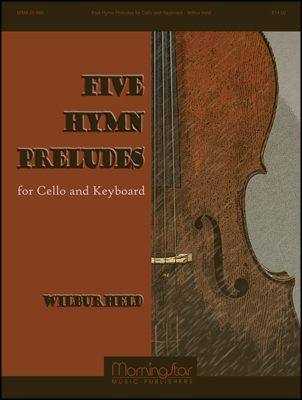- |
User Links
Behold the Glories of the Lamb

Behold the glories of the Lamb
Author: Isaac WattsPublished in 273 hymnals
Printable scores: PDF, MusicXMLAudio files: MIDI
Representative Text
1 Behold the glories of the Lamb
amidst His Father's throne!
amidst His Father's throne!
Prepare new honors for His name,
and songs before unknown,
and songs before unknown.
2 Let elders worship at His feet,
the church adore around,
the church adore around,
with vials full of odors sweet,
and harps of sweeter sound,
and harps of sweeter sound.
3 "Worthy the Lamb that died," they cry,
"to be exalted thus,
to be exalted thus!"
"Worthy the Lamb," let us reply,
"for He was slain for us,
for He was slain for us."
4 Now to the Lamb that once was slain
be endless blessings paid;
be endless blessings paid;
salvation, glory, joy, remain
forever on Thy head,
forever on Thy head.
5 Thou hast redeemed our souls with blood,
hast set the pris'ners free,
hast set the prisoners free,
hast made us kings and priests to God,
and we shall reign with Thee,
and we shall reign with Thee.
6 To Him who sits upon the throne,
the God whom we adore,
the God whom we adore,
and to the lamb that once was slain,
be glory evermore,
be glory evermore.
Source: Psalms and Hymns to the Living God #298
Author: Isaac Watts
 Isaac Watts was the son of a schoolmaster, and was born in Southampton, July 17, 1674. He is said to have shown remarkable precocity in childhood, beginning the study of Latin, in his fourth year, and writing respectable verses at the age of seven. At the age of sixteen, he went to London to study in the Academy of the Rev. Thomas Rowe, an Independent minister. In 1698, he became assistant minister of the Independent Church, Berry St., London. In 1702, he became pastor. In 1712, he accepted an invitation to visit Sir Thomas Abney, at his residence of Abney Park, and at Sir Thomas' pressing request, made it his home for the remainder of his life. It was a residence most favourable for his health, and for the prosecution of his literary… Go to person page >
Isaac Watts was the son of a schoolmaster, and was born in Southampton, July 17, 1674. He is said to have shown remarkable precocity in childhood, beginning the study of Latin, in his fourth year, and writing respectable verses at the age of seven. At the age of sixteen, he went to London to study in the Academy of the Rev. Thomas Rowe, an Independent minister. In 1698, he became assistant minister of the Independent Church, Berry St., London. In 1702, he became pastor. In 1712, he accepted an invitation to visit Sir Thomas Abney, at his residence of Abney Park, and at Sir Thomas' pressing request, made it his home for the remainder of his life. It was a residence most favourable for his health, and for the prosecution of his literary… Go to person page >Text Information
| First Line: | Behold the glories of the Lamb |
| Title: | Behold the Glories of the Lamb |
| Author: | Isaac Watts |
| Meter: | 8.6.8.6 |
| Language: | English |
| Copyright: | Public Domain |
Notes
Behold the glories of the Lamb. J. Watts. [Praise.] First published in his Hymns, &c, 1707 (2nd edition, 1709, Book i., No. 1), in 8 stanzas of 4 lines, and entitled, “A New Song to the Lamb that was slain." It is a paraphrase of a part of Rev. I. Watts's biographers state that this was his first hymn, and was written in 1696 in answer to a challenge that he could not produce better hymns than those by W. Barton (q. v.) which were sung in the Chapel in Southampton which he attended, and against which he had laid a complaint. In the Hymns, &c, stanzas iv. and v. are bracketed for omission if desired, and in the Baptist Psalms & Hymns, 1858, and others, this is done. In Darling's Hymns, 1886, it is given as "How great the glory of the Lamb." The use of the hymn is extensive, both in Great Britain and America.
In the Draft Scottish Translations and Paraphrases of 1745, a somewhat peculiar cento is given as No. ix. in 12 stanzas of 4 lines. It opens with this first stanza, and is thus composed: stanzas i., ii., iii, iv. corresponding stanzas from this hymn; stanza v. Watts; stanza vi. new; stanza vii. Watts. From this point stanzas viii. to xii. are Watts's "Come let us join our cheerful songs" (q. v.) slightly altered. In the authorized issue of the Translations and Paraphrases in 1781, there is another cento, opening again with the same stanza, but differing from the last. It is thus composed: stanzas i., ii., iii., iv. Watts, as above, with new alterations; stanza v. Watts, "Come let us, &c." as altered in 1745; stanza vi. Watts; vii. Watts altered; stanza viii. Watts, as above; stanza ix. from 1745; stanza x., xi. Watts, "Come let us, &c," slightly altered. This complicated arrangement was made by W. Cameron (q. v.) for the 1781 issue of the Translations &c, and has been in use in the Church of Scotland for 100 years. It is also found in a few modern hymnals. It was given in the Salisbury Hymn Book1857, No. 171, with slight alterations. Full recast text in modern copies of the Scottish Psalms, &c. This, in common with the original, is in use in America. From this arrangement in the Translations & Paraphrases, a cento is given in Stevenson's Hymns for the Church and Home, 1873, No. 92, as "Hark, how the adoring hosts." In this stanzas i.-iv. and x. are omitted.
In Miss J. E. Leeson's Paraphrases and Hymns, &c, 1853, this arrangement of the hymn is given with extensive alterations and additions, as No. 110 in 12 stanzas of 4 lines. Its use is limited, although stanzas ix.-xii. are very fine.
-- John Julian, Dictionary of Hymnology (1907)


 My Starred Hymns
My Starred Hymns





